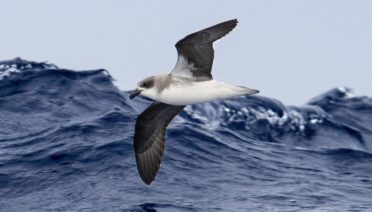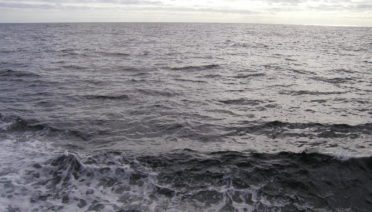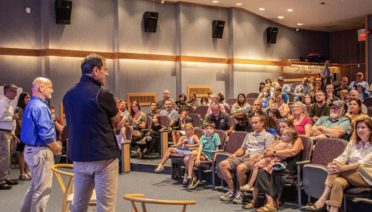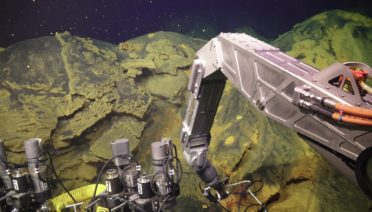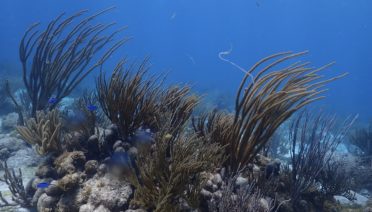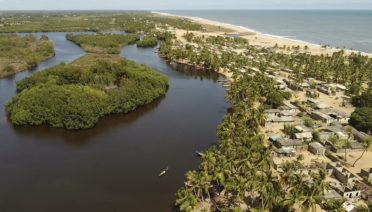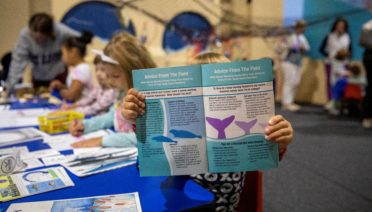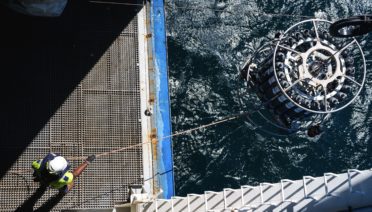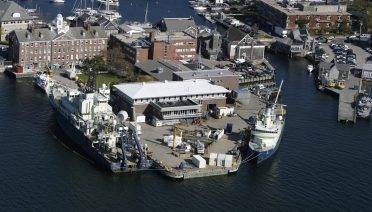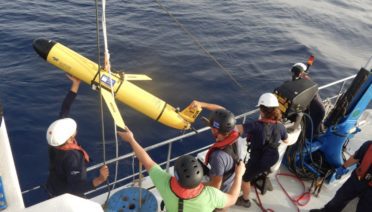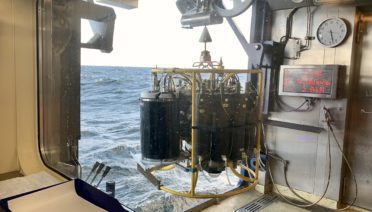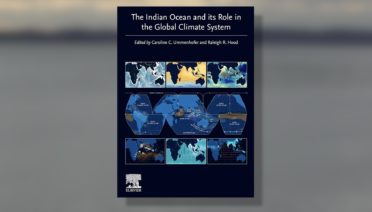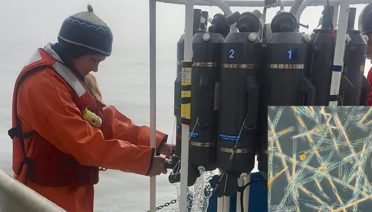Press Room
A new study reveals that the rare Desertas Petrels, a wide-ranging seabird in the North Atlantic, exhibit unique foraging behaviors during hurricane season.
Three BGDF scholars will participate in the BGD IMPETUS-Internship at WHOI. This paid, 10-week summer program provides an opportunity for BGD Scholars to engage in cutting-edge research.
Group received $1.2MM NOAA grant, one of the largest single investments in technology targeting the deep sea.
Looking for a fun, free, interactive way to learn more about the mysteries of the ocean? WHOI & the Yawkey Foundation present the 2024 Ocean and Climate Outreach Series.
A new study investigates how the influence of low gravity, as found on ocean worlds in our solar system, impacts flow of water and heat below their seafloors.
MIT, Woods Hole Oceanographic Institution researchers find wave activity on Saturn’s largest moon may be strong enough to erode the coastlines of lakes and seas.
What species live in this coral reef, and are they healthy? Chemical clues emitted by marine organisms might hold that information
New program at Schmidt Sciences will refine details of ocean carbon cycling and ecosystem resilience
In June 1964, the world’s first deep-diving submersible dedicated to scientific research was commissioned. What have we learned over the past 60 years?
The Cape Cod Children’s Museum (CCCM) is proud to announce that its Exploring Cape Cod Waters exhibit is now fully complete.
New method will provide accurate counts and breeding success of the threatened species in the light of climate change
In his new book, A Kids Book About Being a Scientist, award-winning author and WHOI chemist Chris Reddy encourages young people to explore the world around them
A new technology detects trace amounts of oxygen in an environment where previously these life-supporting molecules were below the limit of detection.
At Woods Hole Oceanographic Institution’s (WHOI’s) Spring Joint Meeting of the Board and Corporation today, Institution leaders elected three new Trustees and seven new Corporation Members.
On Saturday, May 11, WHOI welcomed students from Perkins School for the Blind’s Outreach Program.
The Communicator Awards recognizes organizations committed to excellence, effectiveness, and innovation across all areas of communication.
New research shows how tiny plant-like organisms hitch a ride on ocean currents to reach darker and deeper depths, where they impact carbon cycling and microbial dynamics in the subtropical oceans.
Human activities account for a substantial amount – anywhere from 20% to more than 60% – of toxic thallium that has entered the Baltic Sea over the past 80 years, according to new research by scientists affiliated with WHOI and other institutions.
The Indian Ocean and Its Role in the Global Climate System takes a deep dive into warming trends and extreme weather events
The National Institute of Environmental Health Sciences (NIEHS) and National Science Foundation (NSF) have announced that the Woods Hole Oceanographic Institution (WHOI) will receive funding to continue operating the Woods Hole Center for Oceans and Human Health (WHCOHH).

